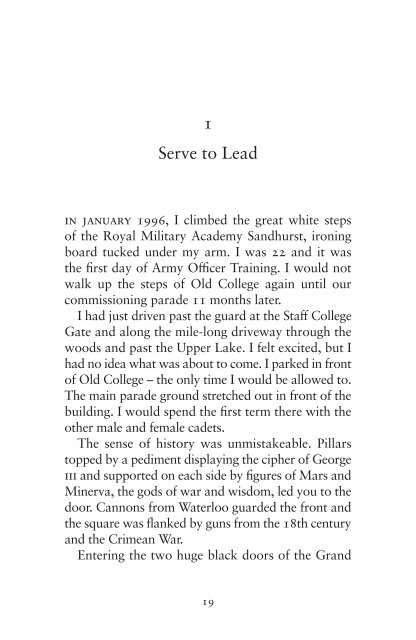Pink Camouflage by Gemma Morgan sampler
Her husband found her by the roadside, delirious and choking on her own vomit. Gemma Morgan was 33, happily married with two young children, an outstanding army service record and a first-class international sporting career. But underneath she was a wreck, surviving on a cocktail of vodka, Valium and sleeping pills. Misogyny, sexual abuse and toxic masculinity had been the daily realities of her Army career long before being deployed unarmed and unsupported to the blood and mayhem of a war zone. Motherhood left her lost and alienated, a soldier who had deliberately suppressed her femininity with no idea how to cope. Together, these experiences triggered a mental health crisis that left her suicidal, battling PTSD, betrayed and abandoned by the institution to which she had devoted seven years of her life. With the support of her family Gemma has since been on a long, hard and bumpy road to recovery. This is her story in her own words. She has told it to inspire others, especially those who have been affected by the toxic and coercive leadership culture that continues to pervade the British Army.
Her husband found her by the roadside, delirious and choking on her own vomit. Gemma Morgan was 33, happily married with two young children, an outstanding army service record and a first-class international sporting career. But underneath she was a wreck, surviving on a cocktail of vodka, Valium and sleeping pills.
Misogyny, sexual abuse and toxic masculinity had been the daily realities of her Army career long before being deployed unarmed and unsupported to the blood and mayhem of a war zone.
Motherhood left her lost and alienated, a soldier who had deliberately suppressed her femininity with no idea how to cope.
Together, these experiences triggered a mental health crisis that left her suicidal, battling PTSD, betrayed and abandoned by the institution to which she had devoted seven years of her life.
With the support of her family Gemma has since been on a long, hard and bumpy road to recovery. This is her story in her own words. She has told it to inspire others, especially those who have been affected by the toxic and coercive leadership culture that continues to pervade the British Army.
You also want an ePaper? Increase the reach of your titles
YUMPU automatically turns print PDFs into web optimized ePapers that Google loves.
1<br />
Serve to Lead<br />
In January 1996, I climbed the great white steps<br />
of the Royal Military Academy Sandhurst, ironing<br />
board tucked under my arm. I was 22 and it was<br />
the first day of Army Officer Training. I would not<br />
walk up the steps of Old College again until our<br />
commissioning parade 11 months later.<br />
I had just driven past the guard at the Staff College<br />
Gate and along the mile-long driveway through the<br />
woods and past the Upper Lake. I felt excited, but I<br />
had no idea what was about to come. I parked in front<br />
of Old College – the only time I would be allowed to.<br />
The main parade ground stretched out in front of the<br />
building. I would spend the first term there with the<br />
other male and female cadets.<br />
The sense of history was unmistakeable. Pillars<br />
topped <strong>by</strong> a pediment displaying the cipher of George<br />
III and supported on each side <strong>by</strong> figures of Mars and<br />
Minerva, the gods of war and wisdom, led you to the<br />
door. Cannons from Waterloo guarded the front and<br />
the square was flanked <strong>by</strong> guns from the 18th century<br />
and the Crimean War.<br />
Entering the two huge black doors of the Grand<br />
19


















